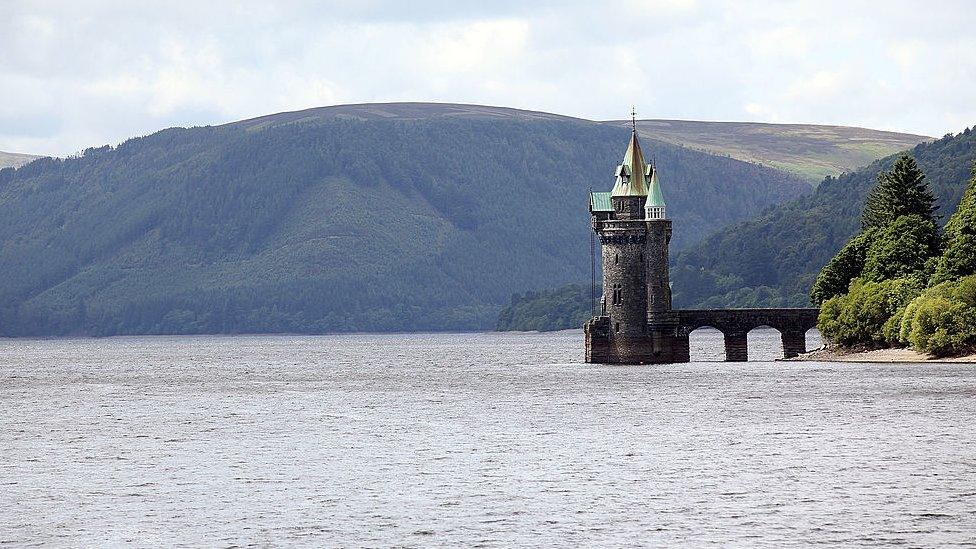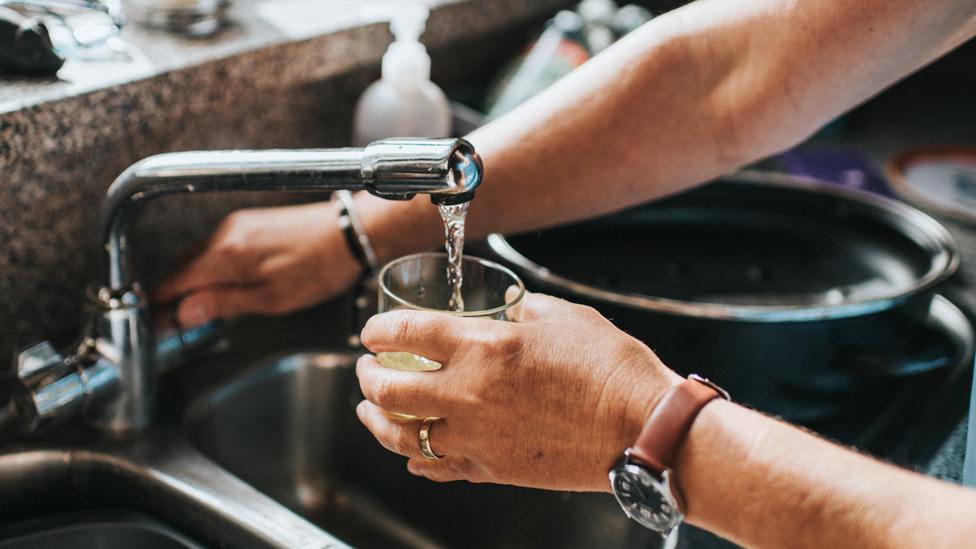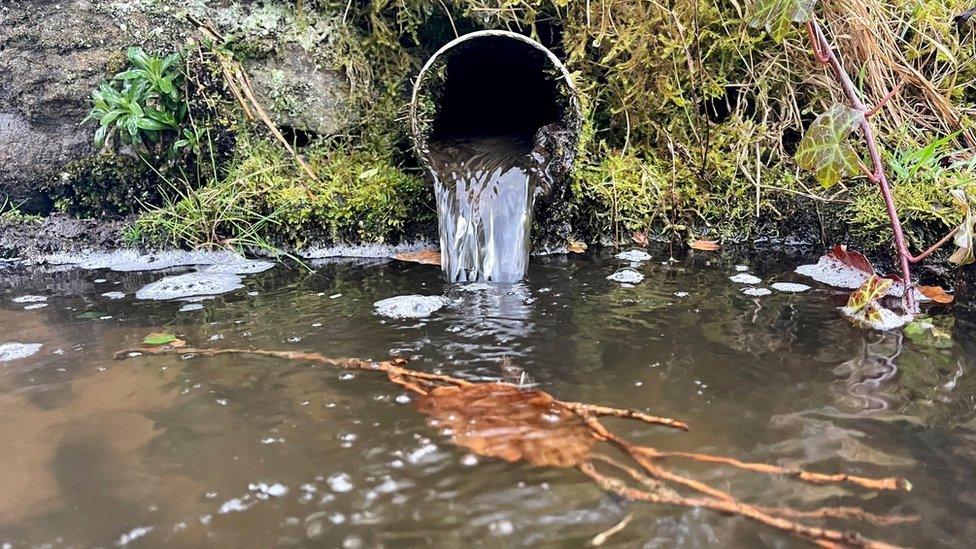Wales 'missing out on fortune' over water powers - expert
- Published

Lake Vyrnwy in Powys was the largest artificial reservoir in Europe when work on the dam began in 1881
Full control over water policy still has not been transferred to the Welsh government, six years after it was due to have been completed.
One expert said Wales could be missing out on a fortune.
The cabinet minister who steered the bill through Parliament which transferred the powers said he was "aghast" it has not happened yet.
The Welsh and UK governments said there are currently no plans for them to be handed over in the foreseeable future.
The politics of water is an emotionally charged issue in Wales.
The drowning of the Gwynedd village of Capel Celyn to provide water for Liverpool nearly 60 years ago was a pivotal moment, as it showed Wales had no control over who could use its natural resources.
The power over water policy was meant to have been transferred to Wales six years ago under the Wales Act 2017.
Conservative MP Alun Cairns, the former Welsh secretary who put the bill through Parliament, said he was appalled.
"It's meant that the Welsh government have had the opportunity to control the supply and the influence around water policy, and the decisions around water policy but have decided not to take it.
"I'm just aghast and just can't believe it."
A letter obtained by Plaid Cymru shows that after the bill was passed, the Welsh government asked for the project to bring the powers to Wales to be put on ice.
The letter, written in 2018, asked for a delay in devolving the power until 2022.
The then Welsh Environment Minister Hannah Blythyn wrote to her UK government counterpart, Therese Coffey, saying: "The powers in the Wales Act 2017 enable the functions to be split to reflect a Wales and England split along the border.

"Wales' natural resources are not being used for the benefit of the people of Wales," says Plaid Cymru's Delyth Jewell
"Significant work is required to map out all of these functions and to determine the policy to apply in the individual areas.
"The approach will need to be developed with minimal impact on customers and the water companies.
"We had originally agreed to alignment taking place in April 2020.
"This is proving to be a complex process… I therefore seek your agreement to reschedule the target date for the implementation of the alignment to spring 2022."
Plaid Cymru said this mattered because even though ministers in Wales have some powers over what Welsh Water does, it does not over English water companies, which allows them to pipe water from Welsh reservoirs to shore up supplies in England.
Plaid climate change spokesperson Delyth Jewell said "billions of litres of water can be abstracted from Wales every year for use in England".
"That happens at cost because the water companies in England find that getting this water is cheaper than fixing leaky pipes," she said.
"That can't be right. Wales' natural resources are not being used for the benefit of the people of Wales."
Emeritus Prof Roger Falconer, an expert in the politics of water at Cardiff University, said Wales was missing a trick and devolving power could be worth a fortune.
'Phenomenal asset'
"Water is one of the most valuable commodities we have on this planet," he said.
"We cannot survive without water and air and food.
"And if Wales has a chance and an opportunity to control its own water, then I think they should seize that as rapidly as possible.
"This is a phenomenal asset. It's much more valuable than oil.
"We can live on this planet without oil. We can't live on this planet without water.
"So Wales should seize the opportunity, in my view, to do all it can to manage its water to the best of its ability."
As it stands, both governments have said there are no talks going on about devolving water, nor is there any timetable as to when they might begin again.
Related topics
- Published16 April 2023

- Published10 February 2023

- Published21 October 2015

- Published31 January 2017
